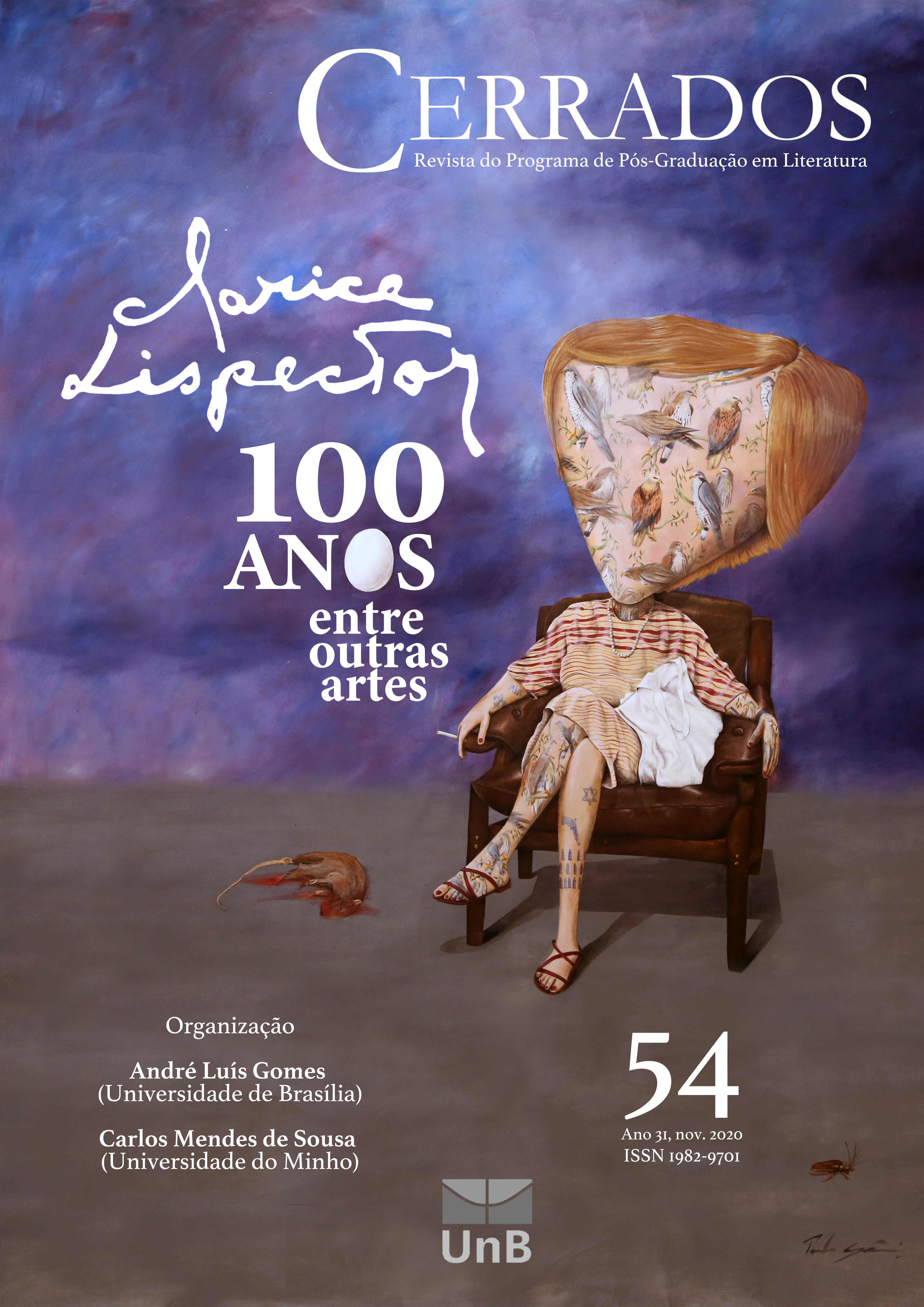O SENTIDO ORIGINÁRIO DA PALAVRA POÉTICA EM ÁGUA VIVA
DOI:
https://doi.org/10.26512/cerrados.v29i54.31165Keywords:
Clarice Lispector; Água viva; Palavra poética; Filosofia.Abstract
This article aims to establish a dialogue between poetry and philosophical thought, capable of evoking the truth of the word and building a rapprochement with language, enneting what is poetic and therefore originating in them. For this, Clarice Lispector's poetic prose in Living Water is invited, and philosophical contributions by Martin Heidegger and Hans-Georg Gadamer, respectively, in the works On the way to language (2011) and Arte y verdade de la palabra (1998). From an understanding of the word poetics and an experience with language, in which poetry and thought build a necessary dialogue, an overview of a word whose character is to say more and genuinely, allowing the reconquest of a force expressive original of the word itself.
Downloads
References
GADAMER, H. G. Arte y verdade de la palavra. Barcelona: Paidós Studio, 1998.
HEIDEGGER, M. A caminho da linguagem. Petropólis, RJ: Vozes; Bragança Paulista, SP: Editora Universitária São Francisco, 2011.
LISPECTOR, C. Água viva. Rio de Janeiro: Rocco, 1998.
______. Para não esquecer. Rio de Janeiro: Rocco, 1999(a).
______. A descoberta do mundo. Rio de Janeiro: Rocco, 1999(b).
______. Um sopro de vida (pulsações). Rio de Janeiro: Rocco, 1999(c).
MOSER, B. Clarice, uma biografia. São Paulo: Cosac Naify, 2009.
OLIVEIRA, M. E. Clarice Lispector: um diálogo entre Filosofia e Literatura. Transformação. São Paulo, v. 11, dez. 1988. Disponível em: <http://www.scielo.br/scielo.php?pid=S0101-31731988000100009&script=sci_arttext>. Acesso em: 08 jan 2014.
PONTARA, M. N.; ABAURRE, M. L. A prosa pós-moderna. In: ______. Literatura Brasileira: tempos, leitores e leituras. São Paulo: Moderna, 2005. p. 614-633.
Downloads
Published
How to Cite
Issue
Section
License
Copyright (c) 2020 Revista Cerrados

This work is licensed under a Creative Commons Attribution 4.0 International License.
Proibida a reprodução parcial ou integral desta obra, por qualquer meio eletrônico, mecânico, inclusive por processo xerográfico, sem permissão expressa do editor (Lei n. 9.610 de 19/2/1998 )



